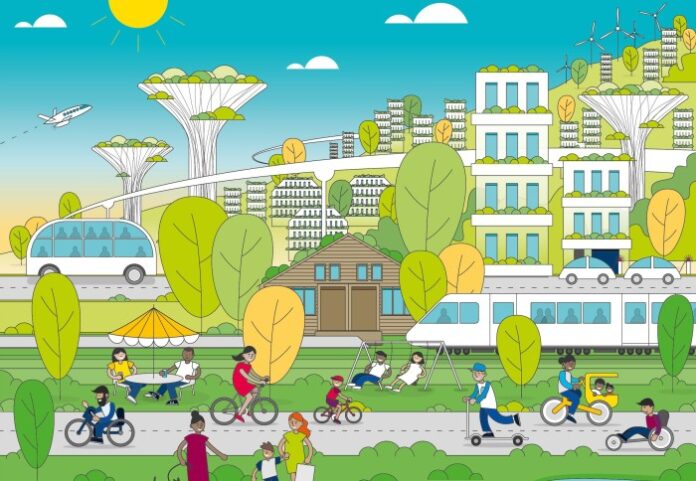Researchers have released a new study exploring how the world can achieve a net-zero emissions transport system.
Reaching net zero emissions to tackle climate change will require a complex set of changes and interventions across all sectors of the economy.
Climate experts and policymakers agree these changes will look different in different sectors and will bring multiple and varied benefits to people and businesses as society moves away from polluting fossil fuels towards using clean energy to power our homes, travel and production of goods.
A new report by the Grantham Institute – Climate Change and the Environment and Energy Futures Lab explores what reaching net zero emissions in the transport sector might look like, by isolating the key changes that will need to take place, and where more research can play an essential role in decarbonising how we travel.
The report, titled “Research pathways for net-zero transport” is launched in the week leading up to the UN Climate Change Conference (COP26), which starts on 31 October in Glasgow, UK, and is co-hosted by the United Kingdom.
Transport is ‘a significant and stubborn emitter’ of the greenhouse gases that heat the planet, as fossil fuels have been a convenient and cheap way to power vehicles and flight for over a century.
As the report outlines, a systems-wide approach must be used to unpick every facet of our society if we are to put the brakes on the climate crisis and limit the devastating harm to all living beings on our planet,
This report provides a better understanding of how human and societal behaviours lead to carbon emissions and explores how the whole system might respond to changes, supporting individuals and organisations to make beneficial and informed decisions as they transition to net zero emissions transport.
“Despite international agreements, global carbon dioxide emissions continue to rise. Some sectors of society have seen reductions, but any progress has been swamped by other sectors that have increased their emissions, the global transport sector being one of them,” said Dr Drew Pearce, research associate in the Department of Physics at Imperial College London and lead author of the report.
“As our report outlines, a systems-wide approach must be used to unpick every facet of our society if we are to put the brakes on the climate crisis and limit the devastating harm to all living beings on our planet,” he continued.
Among the many routes to decarbonising transport systems mentioned in the report, researchers point to old and new technology, from airships and human-powered vehicles such as bicycles and velomobiles – which are low- or zero-carbon transport modes – to Virtual and Augmented Reality technologies – which can help avoid the need to travel – and low-carbon fuels that can be used to lower the greenhouse gas emissions from current flights or miles driven.
Pathways to net zero
The report highlights the primary importance of cutting demand for energy in our transport systems as a key priority, by using transport more smartly and efficiently.
The urgent need to develop and deploy new technologies and approaches that can cut greenhouse gas emissions and phase out fossil fuels from our transport systems, is said to be a secondary priority.
Professor Jenny Nelson, Climate mitigation programme leader at the Grantham Institute and a contributor to the report, said in the report: “Obviously any problem is going to be easier if you reduce the size of it. And the problem of decarbonising transport is going to be easier if we reduce the amount of people and goods that move around.”
Reducing demand for energy will also involve encouraging people to use zero-carbon modes of transport, such as walking and cycling. Barriers to sustainable transport systems must be removed in order to encourage these behaviour changes, ensuring people feel safe and comfortable using zero-carbon transport.







